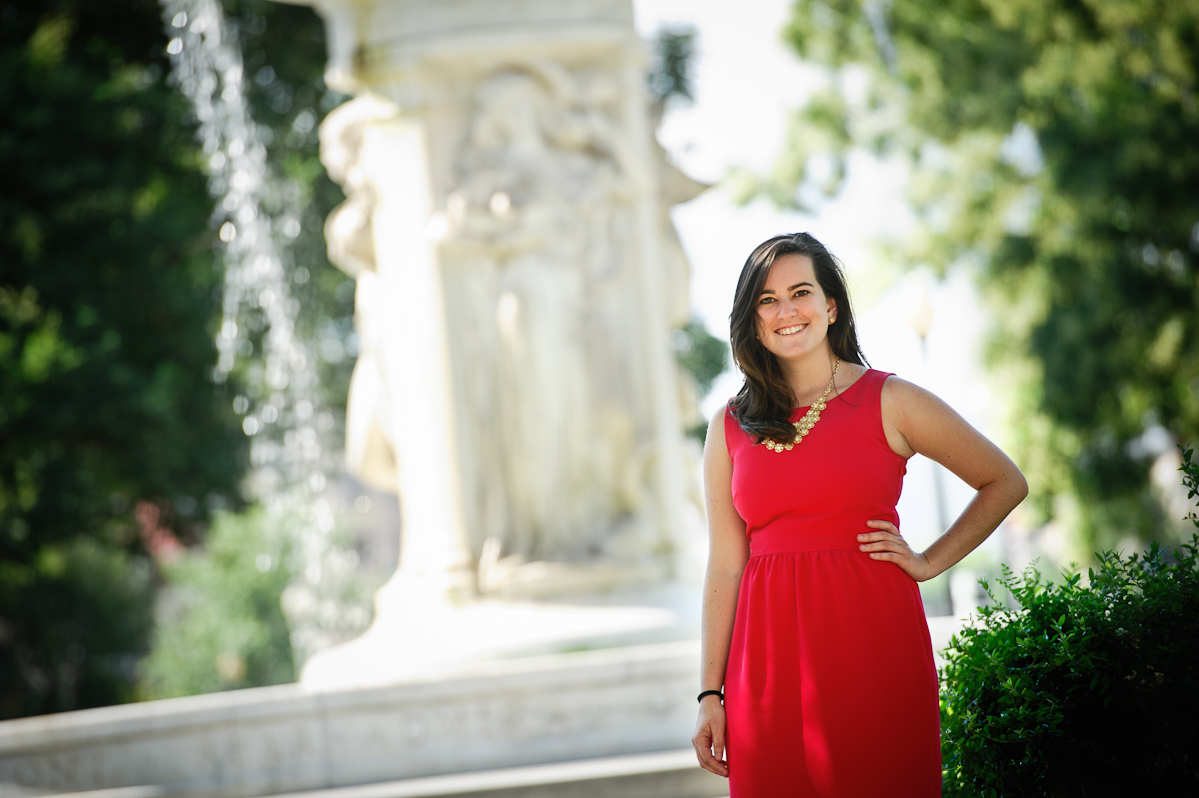
Although the term “America” is often used to mean “the United States of America,” there is much more to America than our 50 states. Maggie Joyce ’16, a world politics major with a concentration on Latin America, is interning at the Council on Hemispheric Affairs (COHA) in Washington, D.C., to promote precisely that idea.
COHA is “a non-partisan, non-profit think tank that aims to promote the common interests of the Western hemisphere, increase the inter-American dialogue, educate the public to the affairs of Latin America, and encourage ethical and practical U.S. policy toward Latin America.” Joyce is completing her internship with help from the Summer Internship Support fund, managed by the Career Center.
While Joyce found the internship herself, Larry Birns, her director at COHA, was familiar with Professor of History Robert Paquette, who wrote Joyce’s recommendation letter. “Mr. Birns ended up calling Professor Paquette directly and asking him about my application,” Joyce explained, “so that was an unexpected (and lucky) connection.”
Although Joyce is a world politics major, she admitted that she has “really deepened [her] understanding of Central and South America and the Caribbean on a variety of topics,” thanks to the pieces written by her fellow interns. She noted that, “everyone takes U.S. and European history classes, and current events in the Middle East and East Asia are extensively covered in the media. Latin America, however, is largely overlooked in the classroom and in the news,” something Joyce hopes to help correct.
Working as a research associate at COHA, Joyce and her fellow co-producer oversee the researching, writing and editing process of the other 24 interns. She described the dozens of steps in the editing process, some of which are one-on-one meetings, a team edit and a read-aloud. When she isn’t fulfilling her duties as a producer, Joyce spends her time researching and writing her own papers and articles.
In the five weeks she has been with COHA, Joyce has published a news analysis of the recently re-elected President Juan Manuel Santos of Colombia; a research article about influential emerging factors the second round of the country’s election; a letter to the editor of the Miami Herald about the proliferation of technology and the internet in Cuba; and co-authored an op-ed about the effects of Bolivian quinoa production on indigenous farmers, not to mention the dozens of articles she’s edited.
Joyce is specifically interested in U.S. relations with Colombia, the country’s chief ally in Latin America. Although Colombia is currently being ravaged by a 50-year-long internal armed conflict, it continues to be one of the fastest growing economies in the region. “I think it’s really important that people understand just how relevant Latin America is to our country,” Joyce remarked. “The area provides much of our food, oil and natural resources, and the problems in Latin America directly impact the U.S. through immigration, the drug trade, etc., and by undermining regional stability in the Western hemisphere.”
In the fall, Joyce will study abroad in Argentina through the School for International Training (SIT). For her inaugural visit to the region, Joyce will take part in SIT’s Social Movements and Human Rights program. Although not entirely sure of her path after college, Joyce would like to return to a think tank, enjoying the stimulating and meaningful nature of her work at COHA.
Maggie Joyce is a graduate of King Low Heywood Thomas in Stamford, Conn.
Posted July 3, 2014
